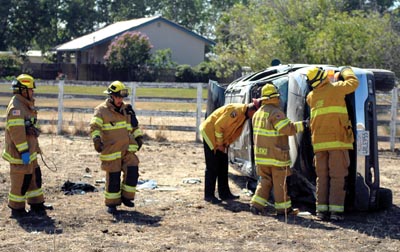A blue orb worth saving
World-famous physicist Stephen Hawking said last week that
humanity’s best hope is the colonization of our moon and other
planets. According to Hawking, we could have permanent colonies on
the moon in 20 years and on Mars in 40.
Forgive me if I don’t ask where to buy tickets. For better or
worse, I’ll continue to cast my lot with Planet Earth.
A blue orb worth saving
World-famous physicist Stephen Hawking said last week that humanity’s best hope is the colonization of our moon and other planets. According to Hawking, we could have permanent colonies on the moon in 20 years and on Mars in 40.
Forgive me if I don’t ask where to buy tickets. For better or worse, I’ll continue to cast my lot with Planet Earth.
I’m not about to dispute Hawking’s brilliance. Hawking has broken new ground in our understanding of black holes and the birth of our universe. The author of “A Brief History of Time,” he speaks and writes authoritatively of things so grand that they make my head hurt just to consider them.
But this time, the 64-year-old British scientist is just a little high and outside. Make that missed-the-backstop.
According to an Associated Press report, Hawking arrived in Hong Kong Monday to a “rock star’s welcome.” His lecture was a quick sellout.
Hawking said that if we can keep from killing ourselves in the next 100 years, we should have space settlements that could continue without support from Earth. Now that’s hopeful.
To sum up, Hawking thinks it unwise to put all of our genetic eggs in one basket.
“It’s important for the human race to spread out into space for the survival of the species,” Hawking was quoted as saying. “Life on Earth is at ever-increasing risk of being wiped out by a disaster, such as sudden global warming, nuclear war, a genetically engineered virus or other dangers we have not yet thought of.”
Other leading scientists do not share Hawking’s vision. Those mentioned in the AP story agreed that it will be many, many years before self-sustaining interplanetary colonies could even be considered.
But there’s something more significant to Hawking’s hypothesis than speculation about space travel. Notice the common thread in Hawking’s menu of disasters? They’re all human-caused.
The notion of finding safety from nuclear conflict or global warming by leaving the planet is akin to abandoning your new car the first time the gas tank runs dry.
The notion that there are better solutions at hand should be obvious, even to someone without Hawking’s brains.
We certainly do have a tendency to put ourselves at great risk, but thus far in our short history, we have eventually prevailed over every natural and human-caused plague thrown at us.
Consider life in our cities little more than 100 years ago. Streets were choked with manure. The skies overhead were black from countless fires and the smokestacks of factories. We fouled our waterways and bays with untreated sewage.
A generation or two ago, mothers would watch their children and worry, looking for the slightest indication that polio had paid a visit, and helpless to do anything to prevent it.
We live longer, better than generations past.
So we continue to face risks at or own hands. The appropriate course might be to fix them before catching the bus to Alpha Centauri.







